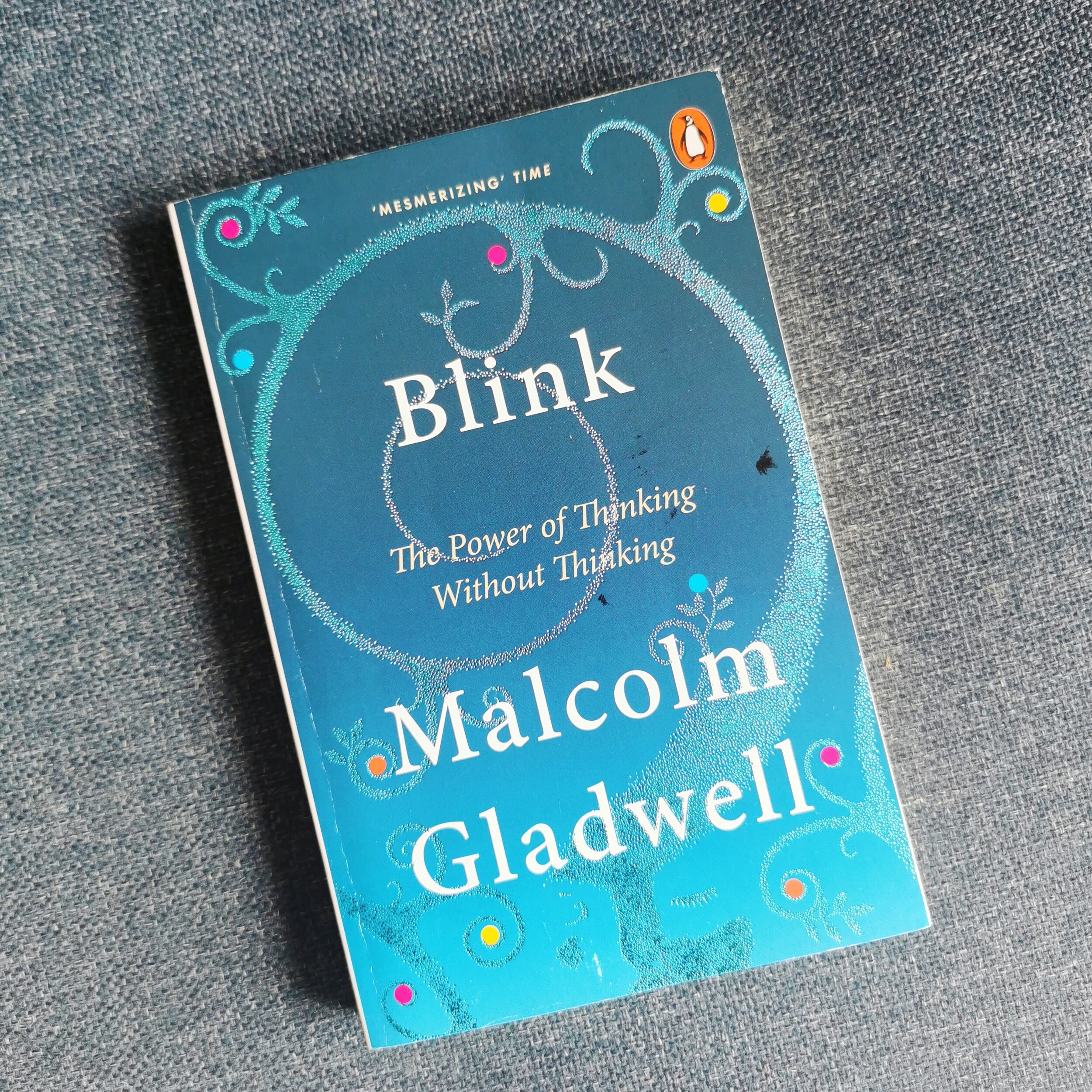Blink - Malcolm Gladwell
3-Sentence Summary:
Experience gives us the gift of acting quickly and intuitively, and this should be used when appropriate, in circumstances where we have deliberately trained or have a lot of experience, for example.
However, we should also be on the lookout for when a more deliberate and thoughtful approach would be better, such as when we have the benefit of time, a specific desired outcome, and a system in place for decision-making.
More information isn't always better, and can in fact be detrimental at times e.g. It is often more informative to look at someone’s actions, facial expressions, or body language than to ask their direct opinion.
Notes:
'Thin-slicing" is when we take a narrow slice of experience and use our unconscious to find a pattern that indicates something about the whole situation. e.g. Gottman (psychologist) using videotapes of couples talking and examining features of the conversation to predict their divorce probability. e.g. Strangers looking at someone's bedroom were able to predict their personality traits better than their friends were. e.g. People were able to predict a doctor's probability of being sued by examining the doctor's tone of voice during interactions with patients.
We don't have access to the information behind why we make snap decisions/judgements, but we often tell a story about them afterwards.
'Priming' uses subtle hints to push your decisions in a certain direction without you knowing it. e.g. Hearing polite words makes you more polite. e.g. Hearing words associated with old people makes you walk more slowly.
Is the real you who you say you are when you answer questions about yourself? Or is it revealed through your actions?
We have our conscious attitudes towards things but also implicit associations. e.g. people are paid $500 extra per year per inch of height.
Consistent exposure to counter-evidence is a way of decreasing these biases.
We presume that more information is better for making decisions, but while it increases our confidence in our decisions, it often makes them worse, not to mention more time-intensive.
We should find the balance between using instinctual judgement when it is effective, and deliberate thinking (which is effective when you have the benefit of time, a clearly defined task, and preferably the help of a computer).
Asking someone's opinion directly is often less informative than looking at their behaviour, body language, or facial expressions.
Taste tests often fail because they're removed from the context in which the food/drink is enjoyed. e.g. One sip of Pepsi might taste better than coke, but a whole can might not.
Often we think we don't like something when we simply aren't used to it.
With training and expertise, we can become better at seeing behind the snap judgements as to whether we like something or not. e.g. Food tasters.
Facial expressions are rich with information, which is why babies are hard-wired to seek out faces. Autistic people tend to do have this, and this aligns with the idea around autistic people not having a theory of mind (the ability to recognise that other people have thoughts different to theirs).
Being overly aroused leaves us mind-blind (temporarily autistic?), as does lack of time. This plays a big part in police shootings, for example, where mistakes are often made, at the risk of life in many cases.
Training and experience can allow you to extract information from the thinnest of slices, as if time were slowed down.
Experience gives us the gift of acting quickly and intuitively, but this gift can be easily disrupted.
This should make us empathetic to others in circumstances where decision-making is impaired.
More information isn't always better, and can in fact be detrimental at times.
If you enjoyed this summary, you’ll probably enjoy the full book. Get it here: LINK TO BOOK (AMAZON)
Or get it for free on audiobook when you sign up for an Audible account: LINK TO AUDIOBOOK (AMAZON)
(This website uses amazon referral links as part of the Amazon Associates program.)
